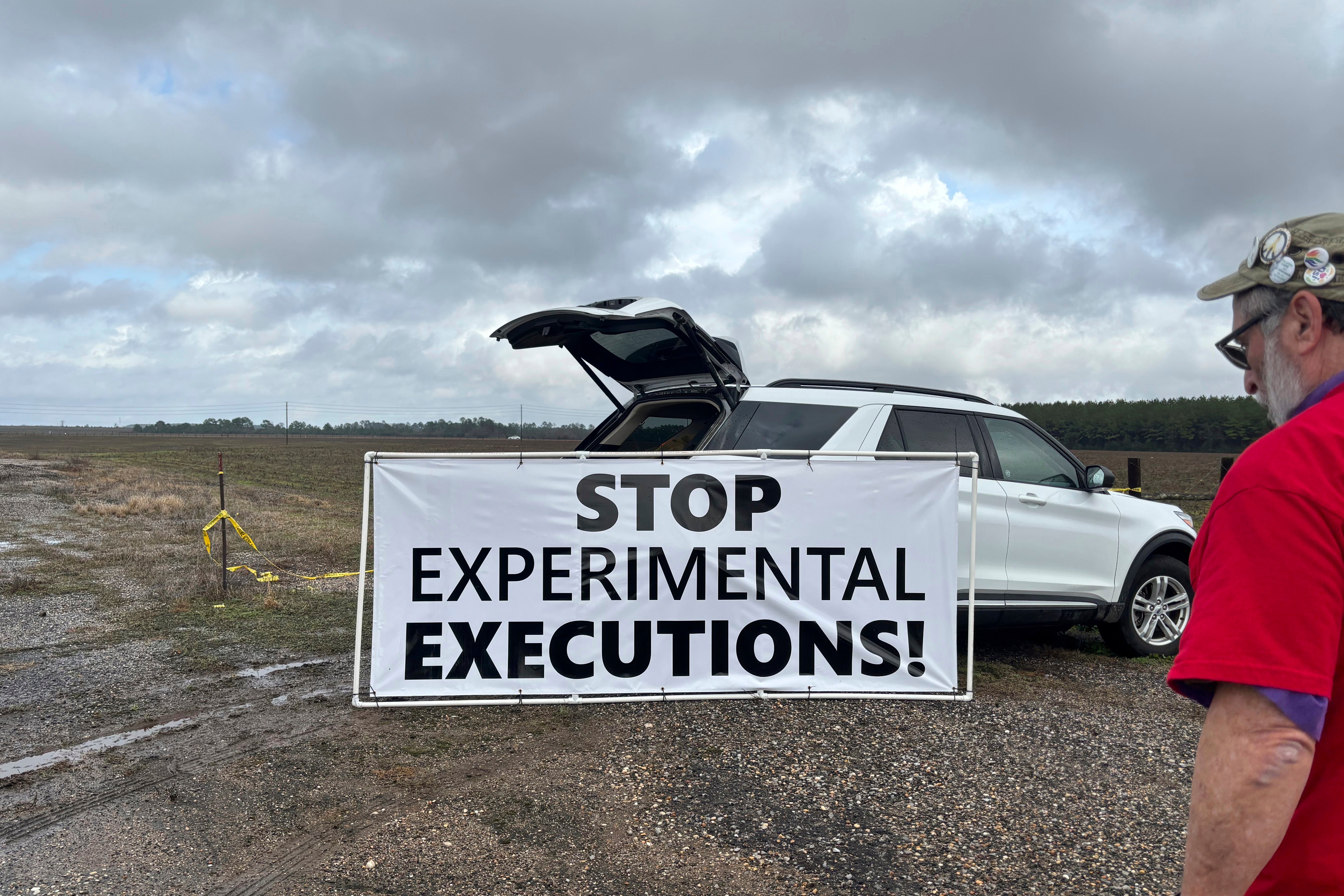As Alabama eyes more nitrogen executions, opponents urge companies to cut off plentiful gas supply
Alabama carried out the nation’s first execution using nitrogen gas

Alabama in late January became the first state to use nitrogen gas in an execution, finding a new way to carry out a death sentence after drug companies refused to let their products be used in lethal injections.
Kenneth Eugene Smith, 58, was put to death Jan. 25 for the 1988 murder-for-hire killing of 45-year-old Elizabeth Sennett. State prison officials put a mask over his face, replacing the air he breathed with nitrogen gas and depriving him of oxygen.
Alabama has said it plans to continue using this new method. Other states are considering following its lead given that nitrogen gas, the chief material in a nitrogen execution, is readily available to purchase. But at least one company has said it won’t supply nitrogen for execution, and anti-death penalty groups hope others will do the same.
Despite the availability of nitrogen gas, legal challenges may end up being a big hurdle for prison officials trying to procure it, at least for the time being.
HOW DID WE GET HERE?
The refusal of drug companies to allow their products to be used in lethal injections, and ongoing litigation over that execution method, have made it hard for some states to carry out death sentences. That led them to explore alternate means of carrying out executions.
Three states — Oklahoma, Mississippi and Alabama — have authorized nitrogen gas as an execution method. In Oklahoma, nitrogen was authorized as a back-up method in case lethal injection is unavailable because of court rulings or a shortage of drugs. Alabama law gives prisoners the option to choose nitrogen as their preferred method.
WHERE DID ALABAMA GET THE NITROGEN?
Just as the state has refused to name suppliers for lethal injection drugs, the Alabama Department of Corrections won't say where it obtained the nitrogen gas used to kill Smith. The state redacted information in federal court records that could identify the supplier. Court documents filed by the state showed the gas used was certified as 99.999% pure nitrogen.
WHERE CAN STATES OBTAIN NITROGEN?
Nitrogen gas can be purchased easily without a license from manufacturers, industrial suppliers or even online retailers. Nitrogen gas is used for a variety of purposes in manufacturing, welding, inflating tires and equipment calibration and maintenance. The plentiful supply is likely one reason that some states have expressed interest in the new method.
The air surrounding us is 78% nitrogen and generators can be purchased that produce high-purity nitrogen by isolating it from other gasses in the air. That could allow prison officials to get around suppliers' reluctance to provide nitrogen gas for executions.
CAN COMPANIES REFUSE TO SUPPLY THE GAS?
At least one major manufacturer, AirGas, which was acquired by French-owned Air Liquide, has said it will not supply gas for executions. The stance is similar to those taken by drug companies that refuse to supply lethal injection drugs.
“Since 2019, Airgas has publicly articulated its position that supplying nitrogen for the purpose of human execution is not consistent with our company values and that position has not changed. Airgas has not and will not supply nitrogen or other inert gases to induce hypoxia for the purpose of human execution,” a company spokeswoman wrote in an email.
Bianca Tylek, the founder of Worth Rises, a criminal justice advocacy group, said she hopes other manufacturers follow the lead of Airgas and drug manufacturers.
She acknowledged it's harder to cut off the supply of readily available high-purity nitrogen gas, but urged companies to prohibit their products from being used in executions.
Even when supplies of lethal injection drugs were cut by manufacturers, states found workarounds such as turning to compounding pharmacies.
WILL THERE BE OBSTACLES TO NITROGEN GAS EXECUTIONS?
Activists and lawyers for people on death row will continue to fight the use of nitrogen gas for executions and legal challenges could slow things down, at least for a while.
Already, critics are seizing on witness descriptions of Smith convulsing on the gurney for several minutes to demonstrate that nitrogen gas does not provide a humane and quick death, as the state promised.
WHAT ARE ALABAMA'S PLANS?
The day after Smith's death, Alabama Attorney General Steve Marshall declared the execution a success and said the state will pursue more nitrogen executions in the future. He offered help to other states wishing to follow Alabama’s path.
But nitrogen hypoxia will not replace lethal injection in Alabama. Going forward, the state's execution method will be based on “the choice of the inmate,” Marshall said.
Alabama gave inmates a brief window to select nitrogen as their preferred execution method. More than 40 people on the state's death row have selected nitrogen as their preferred method. However, there will almost certainly be litigation, citing how Smith's execution unfolded, the next time the state tries to set an execution date using nitrogen gas.
An Alabama death row inmate filed a lawsuit challenging the constitutionality of nitrogen gas executions. The lawsuit, which cited witness accounts of Smith shaking and writhing on the gurney, argued that Smith's execution was “a human experiment that officials botched miserably" and “cannot be allowed to be repeated.” A federal judge has set a March hearing on a death row inmate's request to see the unredacted nitrogen execution protocol, the gas mask and other information that was disclosed to Smith's attorneys.